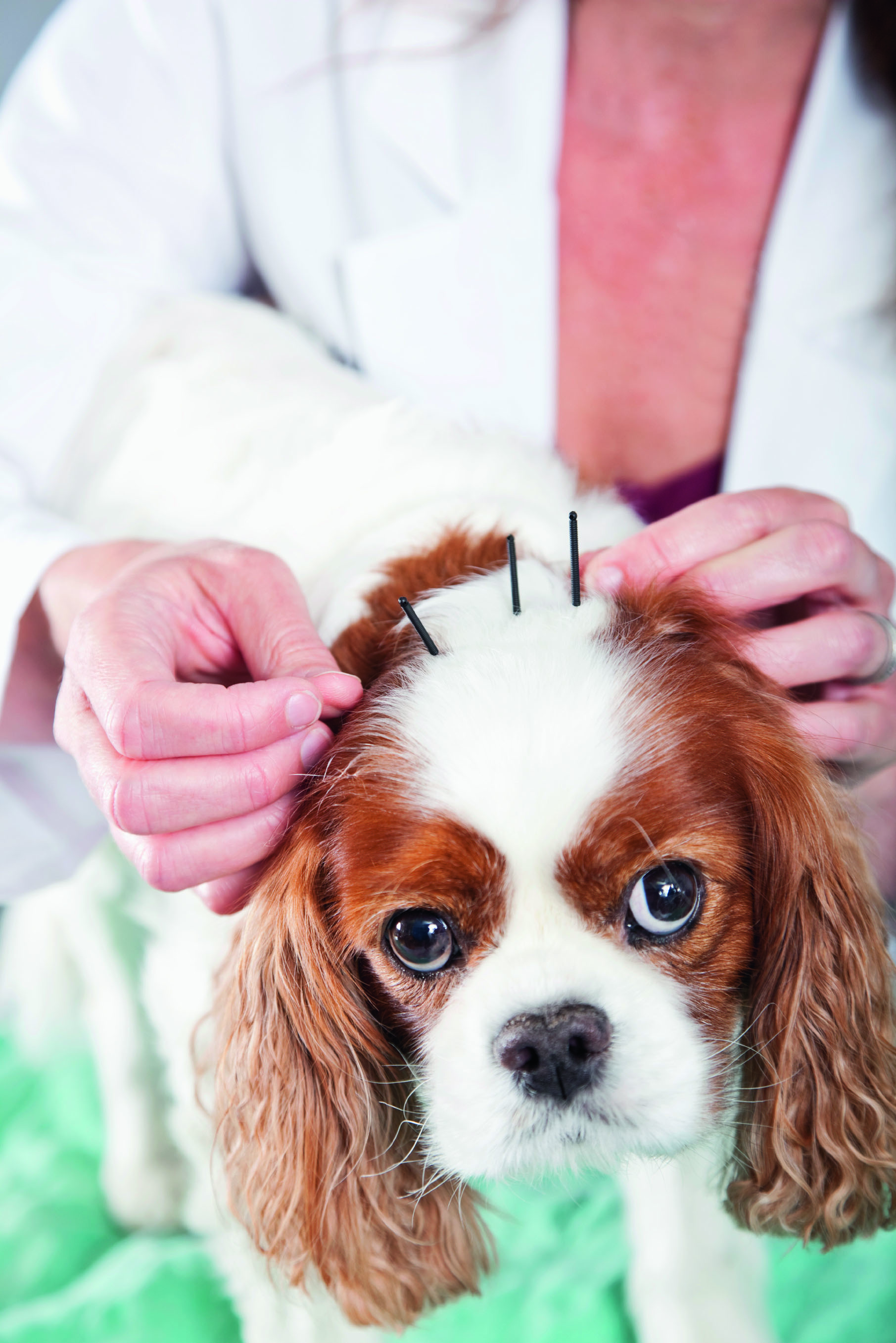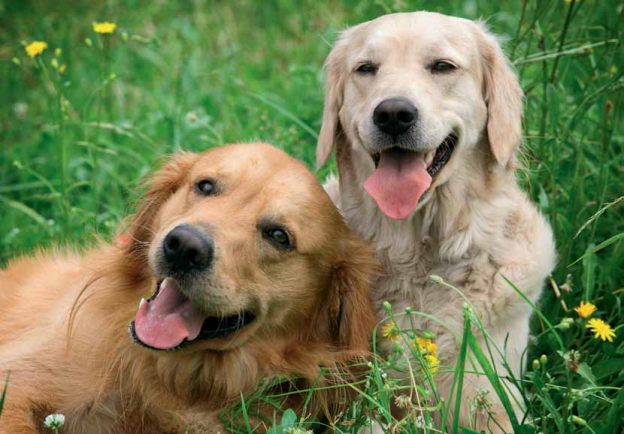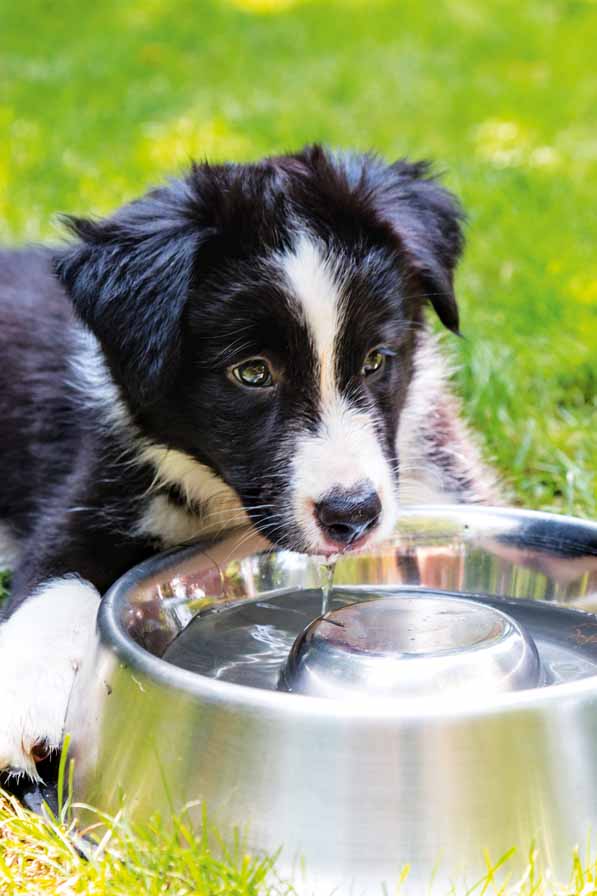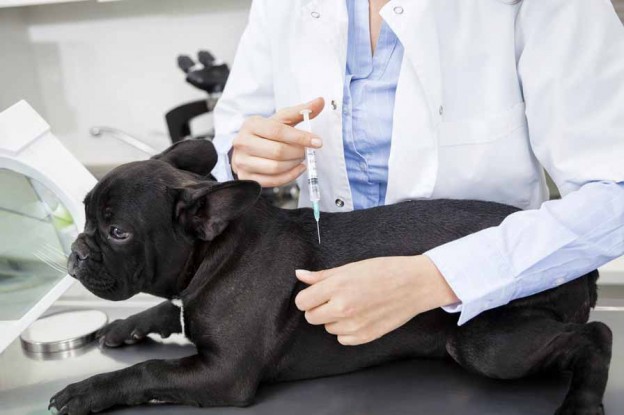
From arthritis to cardiovascular disease, acupuncture can be used to treat a range of common ailments in our furry friends. Tim Falk reports.
Needles: the mere mention of the word is enough to send shivers down many a spine. For some people, the idea of using scores of fine, sharp acupuncture needles to treat a wide range of health problems is daunting to say the least, yet evidence suggests acupuncture has been around for some 4500 years.
And while most of us are familiar with acupuncture as an alternative form of medicine for humans, this ancient collection of procedures can also be used to treat our pets.
“In western medicine terms, acupuncture works in several ways,” explains veterinarian Dr Caroline Butler from The Lost Dogs’ Home Frank Samways Veterinary Clinic. “It releases different neurotransmitters from the brain to give pain relief and other effects. Also, acupuncture points are areas of increased inflammatory cells so it can help to repair injuries.
“In eastern medicine terms it helps to increase energy flow and get the body working as well as it can,” she says.
Dr Belinda Parsons from drbelindathevet.com is another veterinarian who practices acupuncture, and she says acupuncture is known to have many varied physiological effects on all systems throughout the body. However, the full extent of those effects and how they happen is not fully understood. “What scientists have proven is that acupuncture points differ at a cellular level from the surrounding skin and that the meridians [energy pathways throughout the body] behave differently from surrounding tissue,” she says.
“They have found that needling acupuncture points produces a local effect (as shown by the area becoming red) and also a systemic effect (as seen by changes in white cell counts and hydrocortisone occurring approximately 20 minutes after needling). It is also thought to cause the release of endorphins, which explains the feel-good feeling associated with acupuncture.”
Does it hurt?
Sticking needles into certain areas of the body may not sound all that appealing — in fact it sounds downright painful — but generally speaking acupuncture doesn’t hurt. “The needles are very fine and sharp so it causes very minimal discomfort. Sometimes the pet may not even feel a needle go in,” Dr Butler says.
Of course, there are certain areas of the body that are going to be more sensitive to the needle placement, but the discomfort experienced by pets undergoing acupuncture is minimal. Dr Parsons explains that acupuncture needles are designed to separate the tissue rather than cut it. “They are also much, much smaller than hypodermic needles which are used for injections. If they feel anything when the needle goes in, it tends to be heat or a burning sensation which quickly resolves,” she says.
What can it treat?
Looking at acupuncture from a more practical point of view, what conditions can it treat? “Acupuncture works really well for muscle, joint and bone conditions,” Dr Butler says. “Things such as arthritis, back pain from muscle spasms or disc disease (that does not require surgery), recovery from orthopaedic surgery (cruciate ligament repair or dislocating kneecap surgery repair), and also urinary incontinence in female dogs can respond well.”
Dr Parsons explains that acupuncture and trigger point therapy can be successful at treating trigger points (muscle knots) when western medicine fails to make any difference. “Trigger points are often an underlying cause of lameness in dogs which will not be identified on radiographs. Trigger point therapy involves the use of a TENS (transcutaneous electrical nerve stimulation) machine, massage and stretching. It works well in combination with acupuncture or on its own,” she says.
In fact, the real beauty of acupuncture is that it can be used in conjunction with western medicine in many situations. “I am a strong believer in using it as a complementary medicine – where it complements and fills the gap when western medicine has reached its limits,” Dr Parsons says. “I believe that you’re going to get a better response if you assess and treat conditions from a holistic approach, rather than limit yourself to only a western or eastern approach.”
Dr Butler recounts the story of a foster animal at the Lost Dogs’ Home who was recovering from luxating patella (dislocating kneecap) surgery. “He was making a fairly slow recovery after surgery and physio was helping but still only slowly. After starting him with acupuncture, his recovery really sped up and he became much more comfortable,” she says.
So while acupuncture might seem a little unusual and hold an air of mystery for some of us, this pinpoint therapy can be used to treat a range of doggy conditions and injuries. Used in conjunction with traditional forms of veterinary medicine, it can help to reduce pain, speed up recovery and help your pooch stay happy and healthy. If you think your dog could benefit from acupuncture treatment or if you’d simply like to find out more about the entire process, speak to your vet next time your pooch is in for a check-up.
How acupuncture could help your dog
Dr Belinda Parsons outlines a list of pet illnesses and conditions that acupuncture can be used to treat:
- Musculoskeletal systems – including arthritis
- Nervous system disorders – including intervertebral disc disease (slipped discs), neurogenic pain, seizures
- Urinary tract disease – including FLUTD in cats, urinary incontinence, inappropriate urinating in cats
- Respiratory tract disorders
- Cardiovascular disease – including congestive heart failure
- Skin disease
- Gastrointestinal disease
- Reproductive disorders – infertility in both male and female pets.







